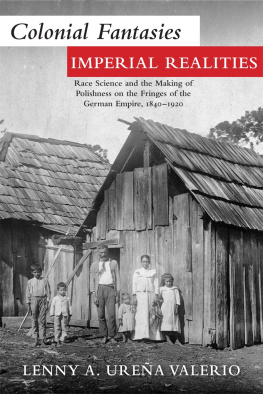Richard Griffiths, 2010
All rights reserved. No part of this book may be reproduced in any material form (including photocopying or storing it in any medium by electronic means and whether or not transiently or incidentally to some other use of this publication) without the written permission of the copyright owner except in accordance with the provisions of the Copyright, Designs and Patents Act 1988. Applications for the copyright owners written permission to reproduce any part of this publication should be addressed to the University of Wales Press, 10 Columbus Walk, Brigantine Place, Cardiff, CF10 4UP.
www.uwp.co.uk
British Library CIP Data
A catalogue record for this book is available from the British Library.
ISBN 978-0-7083-2290-1
e-ISBN 978-1-78316-417-2
The right of Richard Griffiths to be identified as author of this work has been asserted by him in accordance with sections 77, 78 and 79 of the Copyright, Designs and Patents Act 1988.
Cover image: The monument to James Thomas, New Bethel Chapel, Mynyddislwyn Rob Hudson
With very minor exceptions, almost all that has been written about the society created by the coal industry of Wales has been about the workers and the unions, and there is a significant gap as regards the entrepreneurs of the Valleys. It is hardly surprising that so little work has been done in this area, given the reputation accorded in modern times to the nineteenth-century mineowners and their successors. Yet this gap is nevertheless a seriously worrying one, if a rounded picture of life in the south Wales valleys in the nineteenth and early twentieth centuries is to be achieved.
This book is an attempt at social history; it has no claim to be the kind of all-embracing economic history of Welsh entrepreneurism desired by the leading Welsh historian Chris Williams when he declared the pressing need for an even-handed approach to the entrepreneurial and business history of the coalfield. It is, rather, an attempt (hopefully an even-handed one) to enter the enclosed world of the entrepreneurial society of the Valleys, and to consider the collective existence of a restricted portion of society in the Porth-Pontypridd area via the details of the lives of individuals, as found in contemporary documentation. For this approach, I owe much to the late Richard Cobb (Ancient Richard), who taught me how much historical truth could be found by an examination of the individual experiences of people within a social system. The geographical area that will be dealt with is a narrow one, centred around Pontypridd, Porth and the Rhondda valleys, and the Taff valley from Pontypridd to Abercynon and Nelson.
The way into the close and almost claustrophobic middle-class society of this area of the Valleys has been facilitated by concentration on one extended family central to that society; in particular on the coal pioneer James (Siamps) Thomas, his son-in-law William Henry Mathias, and his grandson Sir William James Thomas. These three men were intimately connected with most of the events and developments in this area of industrial south Wales between 1840 and 1914, and were an integral part of the society we will be examining.
Thus it is that Siamps Thomas, the founder of the clan, gives us a rags-to-riches story (graduating as he did from six-year-old doorboy to coalowner), and illustrates the attitudes of the early coalowners to the workers within their mines. His mixed experience of the Tynewydd disaster in 1877 (praised for bravery, sued for negligence) tells us much about relationships down the mines at that period, and about the Governments problems in bringing coalowners to book for negligence. Later, in the years of his great success as owner of one of the most successful steam coalmines in the Rhondda (the Standard Collieries, Ynyshrr), amid the general trend towards limited liability companies and more distant management, he was one of the last outposts of the old methods.
The activities of Siamps Thomass son-in-law, William Henry Mathias, and his father Richard Mathias, tell us much about the entrepreneurial activities of railway contractors in this period of rail expansion; andW. H. Mathiass later career as a mineowner shows us much that had changed in the coalfields over 25 years (while the disaster at his Albion mine, while highlighting those changes, also shows how difficult it was, still, to touch negligent owners). Mathiass activities during the 1893 and 1898 strikes, as magistrate and as owner, highlight the clashes of interest (in particular when the magistrates brought in the military) which seemed to matter so little in such circles. We shall also see some of the more questionable business practices undertaken by people like Mathias (two of the best examples being the backgrounds to the creation of the Cowbridge-Aberthaw Railway, and to the sinking of Windsor Colliery, Abertridwr and the development of workers housing nearby). Mathias was in many ways a typical second-generation entrepreneur, surrounded by similar people to himself; his position was safeguarded by the mutual support given by the members of this acquisitive society, some of whom (e.g. Thomas Griffiths Maesgwyn, William Jenkins Ystradfechan, J. D.Williams Clydach Court, Walter Morgan Forest House, Walter Nicholas, the North Lewis brothers, James Hurman and Henry Oakden Fisher) were close associates of his over many years. Mathiass prominent position in local government is also examined for evidence of some of the practices that existed in that area.
Sir William James Thomas, Bart (Siamps Thomass grandson and Mathiass nephew) epitomizes a new generation of entrepreneurs. He built, via new mining ventures, on the fortune left to him by his grandfather. Having made this money, he, like many others, then withdrew from the mining industry, thus avoiding in time the economic difficulties of the inter-war period, and became part of the escape to the coast. He also shows us the way in which some of the beneficiaries of the coal industry used their money in good works, such as supporting hospitals; and how charitable munificence could reap its rewards. Made a baronet by Lloyd George in the 1919 New Year Honours, he became part of the Cardiff-based aristocracy of the new rich.
These men act merely as the foredrop to the close-knit and mutually supportive society formed by the new middle classes within the townships of the Valleys. The acquisition of wealth, within this society, had not been achieved only by entrepreneurial ability; some of the most prominent people we shall be seeing were, for example, brought to their prominence by their families possession of land, usually farms, at the point where mines were to be sunk or townships built. Wealth was also to be made, in the Valleys, from ventures other than mines or railways. There was a whole substructure which thrived on the new society: contractors and builders; property developers; grocers (ranging from the vastly successful William Evans of Thomas and Evans, creators of Corona mineral waters, to the prosperous owners of corner shops) and so on.
The success of such people as the Thomas/Mathias clan was facilitated by the networks of local worthies by which local society was ruled. The magistracy, the local councils, the County Council, the Boards of Health, the Boards of Guardians, the entrepreneurs, were all part of a highly effective network of interest. It was the mining entrepreneurs, however, who had created the opportunities on which all this activity thrived and it was the railways which were the essential support to these efforts. It was in these two areas that the Thomas and Mathias families gained prominence.













